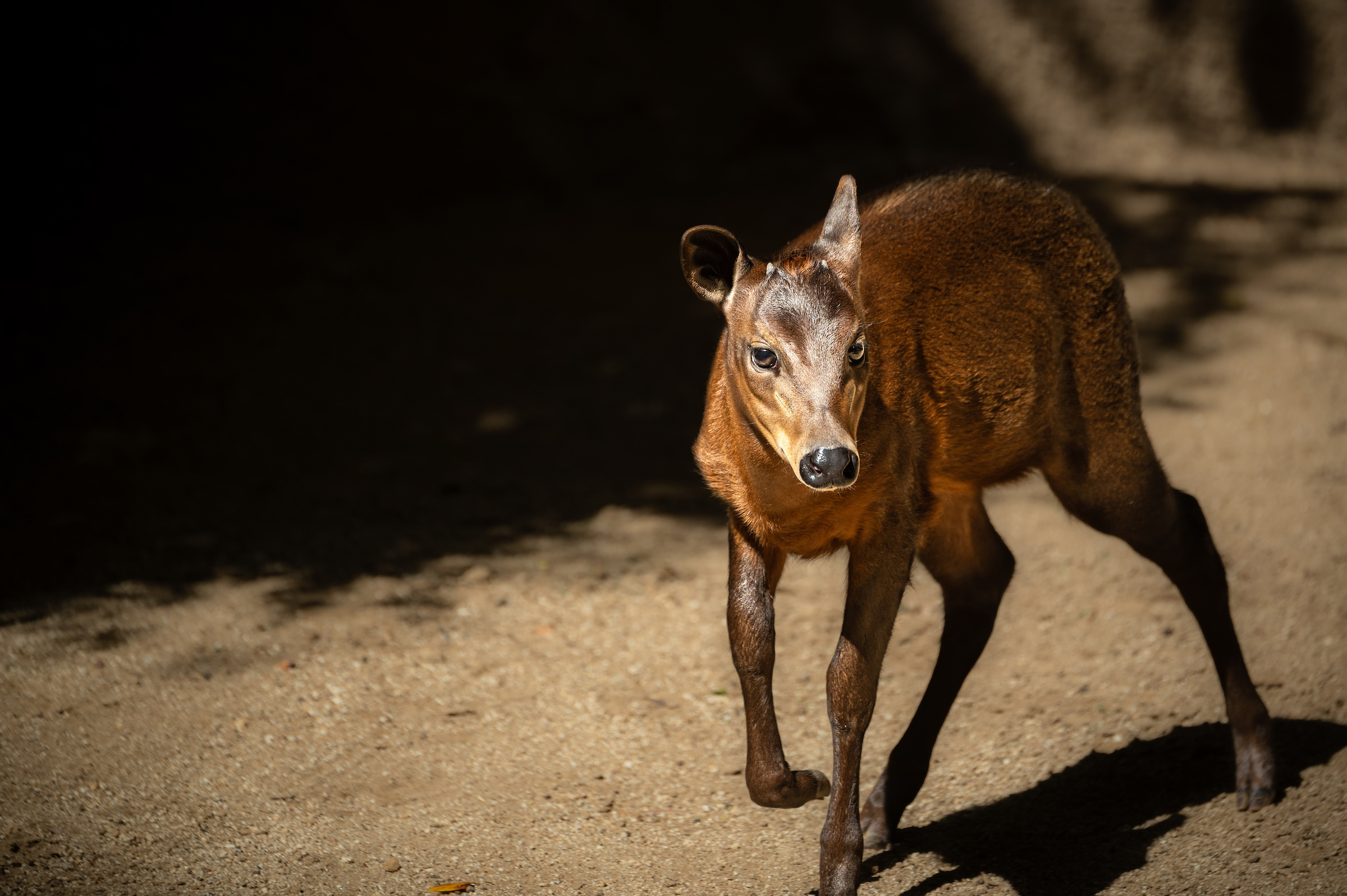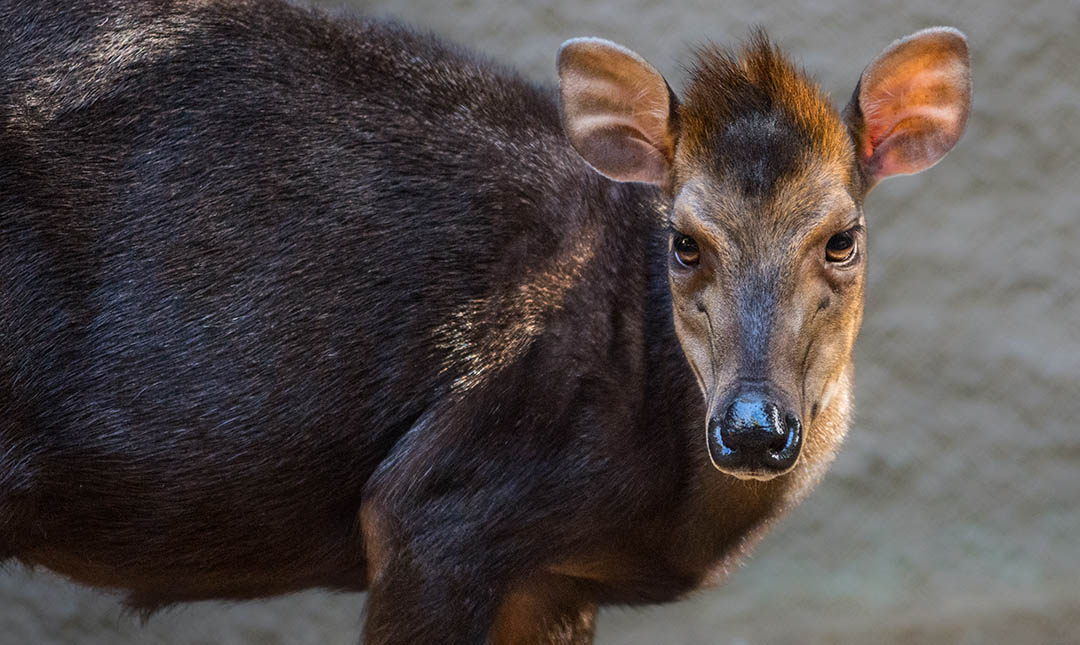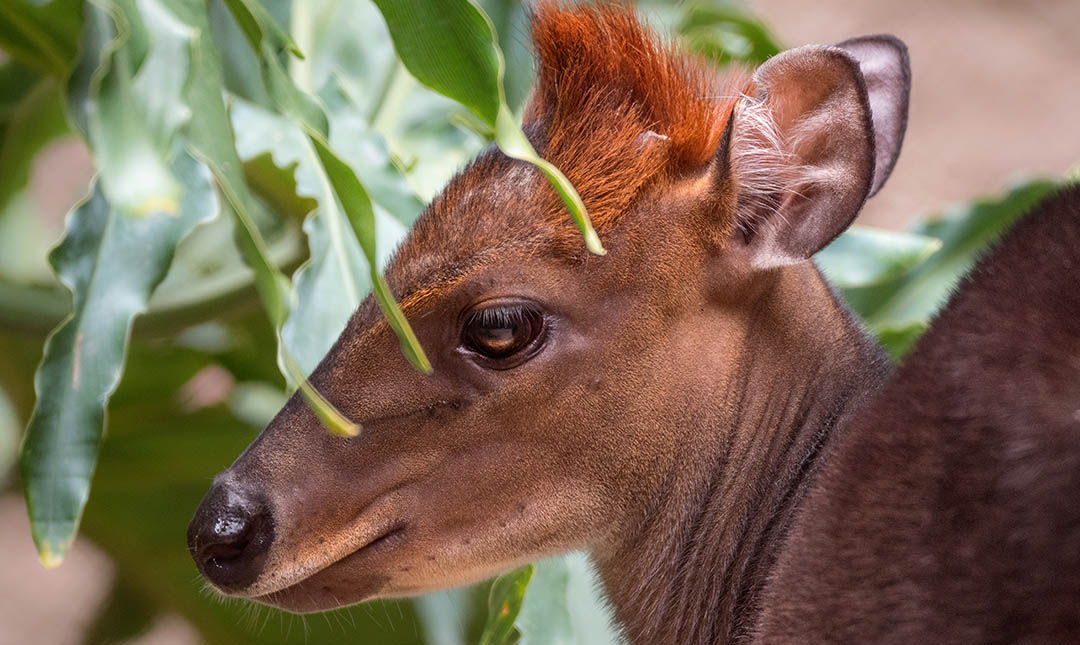About
Black duikers are medium-sized forest antelope native to Africa. The word “duiker” is Afrikaans for “diver” and refers to the animal’s habit of plunging into the underbrush to hide when frightened. Duikers’ bodies are ideally shaped for navigating dense cover in the forest; they are short with arched backs, and their forelegs are shorter than their hind legs. The scent glands below their eyes are used for marking their territory and each other, as they often practice mutual grooming. They live singly or in pairs.
Black duikers spend their days feeding and resting in dense thickets. They are agile jumpers and move easily through the underbrush. Always alert, if a predator is spotted, they may give a shrill bark, whistle, stomp their hind feet, and ultimately flee. Predators include most carnivores, baboons, crocodiles, pythons, eagles, and humans. The main threat from humans is overhunting for bushmeat. Breeding and births tend to occur year round. Gestation is about six and one-half months, after which a single calf is born, weighing about four pounds. The youngsters double in weight in about a month. Duiker calves are considered precocial (meaning the young are well developed at birth) but are concealed by the mothers in vegetation for the first few weeks. They reach sexual maturity at about one year of age and at that time, leave to seek out mates and find their own territories.
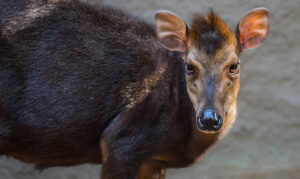
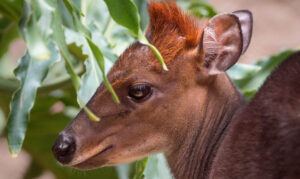
Habitat
Black duikers are found in western Africa, from Guinea eastward to Nigeria along the coast. They live in dense lowland forests.
Diet
Duikers are browsers that eat mainly leaves, fruits, shoots, buds, seeds, and bark. They will sometimes climb on low logs to reach their food. Occasionally, they eat small birds, rodents, insects, and carrion. They also raid agricultural crops.
Physical Characteristics
Duikers have the perfect shape for diving for cover in the forest; they are short, with arched backs and have forelegs that are shorter than their hind legs. The black duiker is more heavily built than the red flanked duiker, measuring approximately 32 inches (head and body length), with a height of 18 inches and weight to 40 pounds. Both males and females have horns that are six inches long that are often hidden in a tuft of hair that grows between the horns. The horns are short and straight. Black duikers are brown to black in color. They have long narrow heads, and large scent glands beneath the eyes that include a series of pores rather than of a single opening. Their brain relative to size is larger than all of the antelopes. The tail of the duiker has a tassel. They have a hesitant high stepping or bouncing gait with sharp eyes and a good sense of hearing and smell. Lifespan is 10 to 14 years.
LOCATION WITHIN THE ZOO
You’ll find this animal in the Africa section. See Zoo Map.

